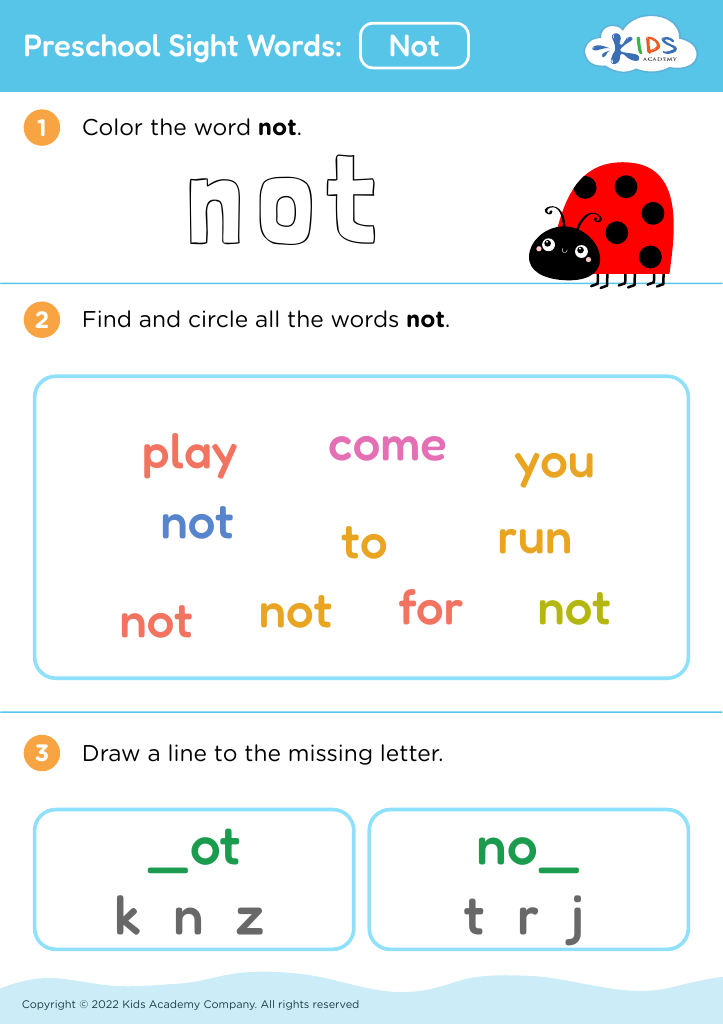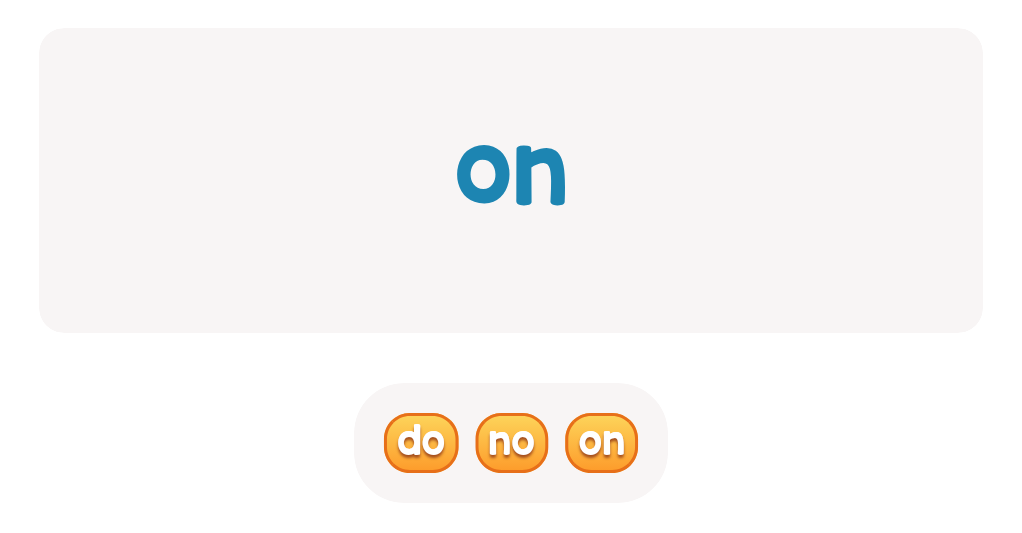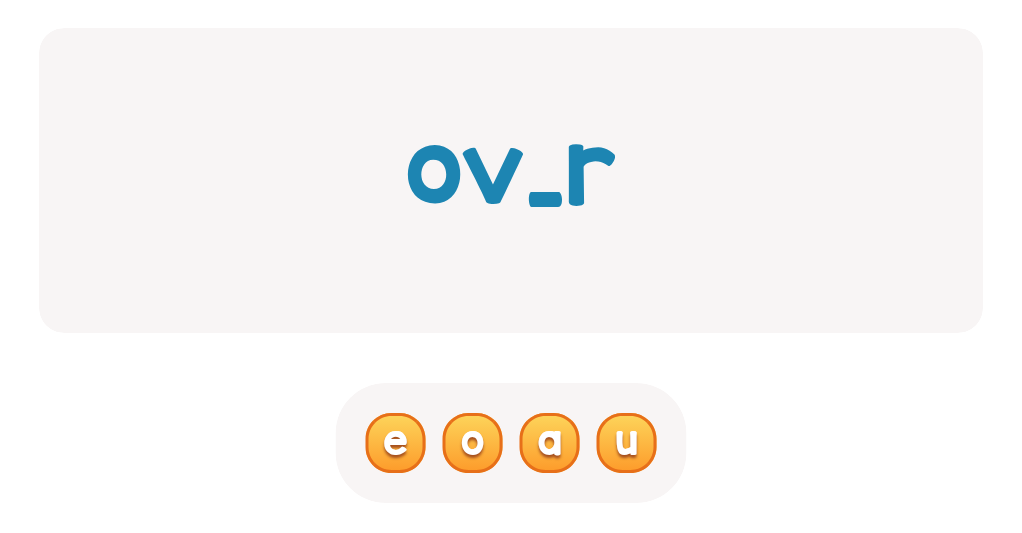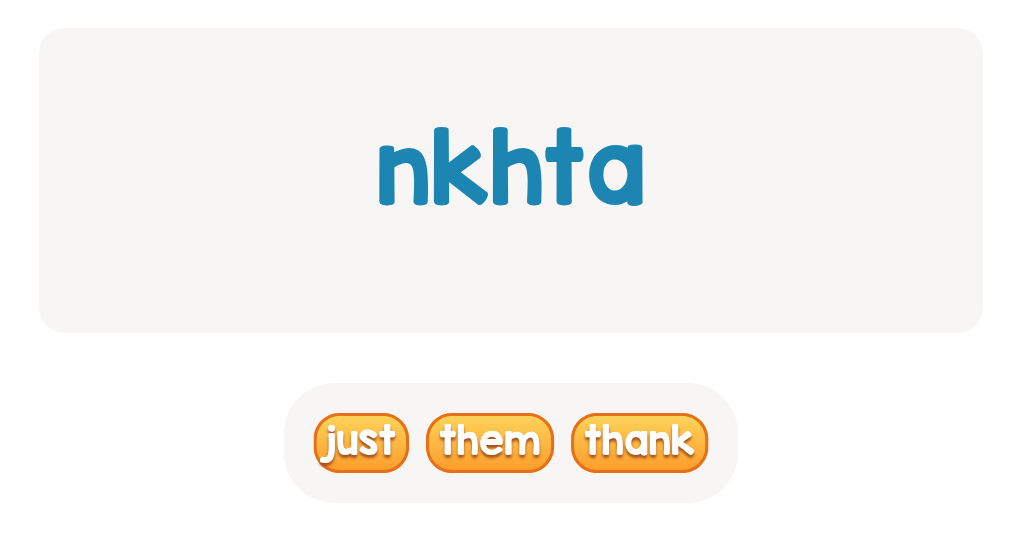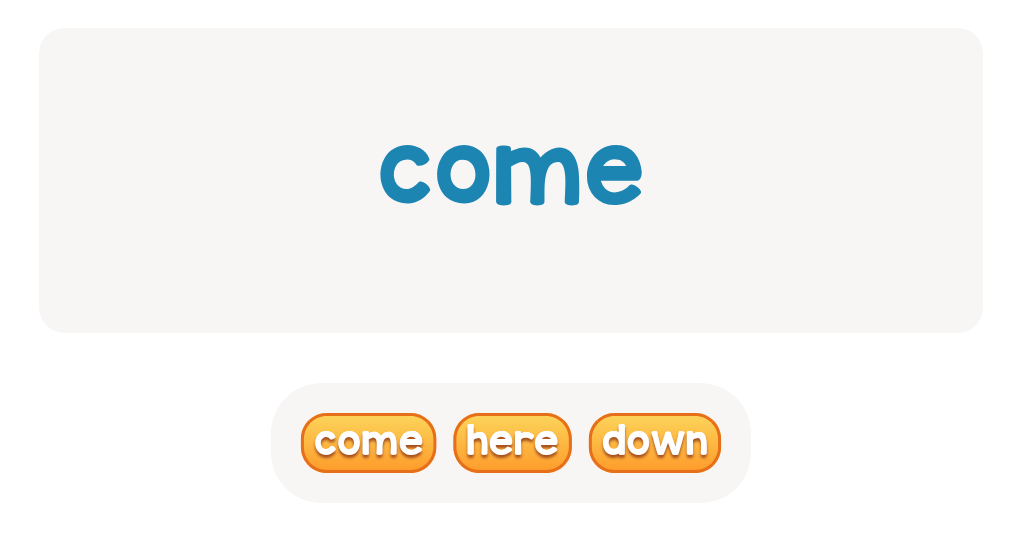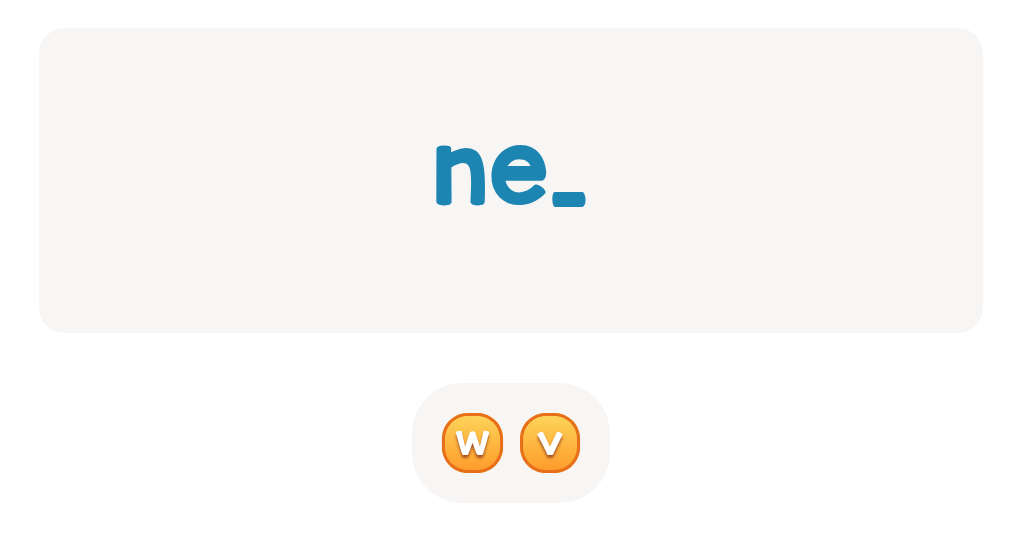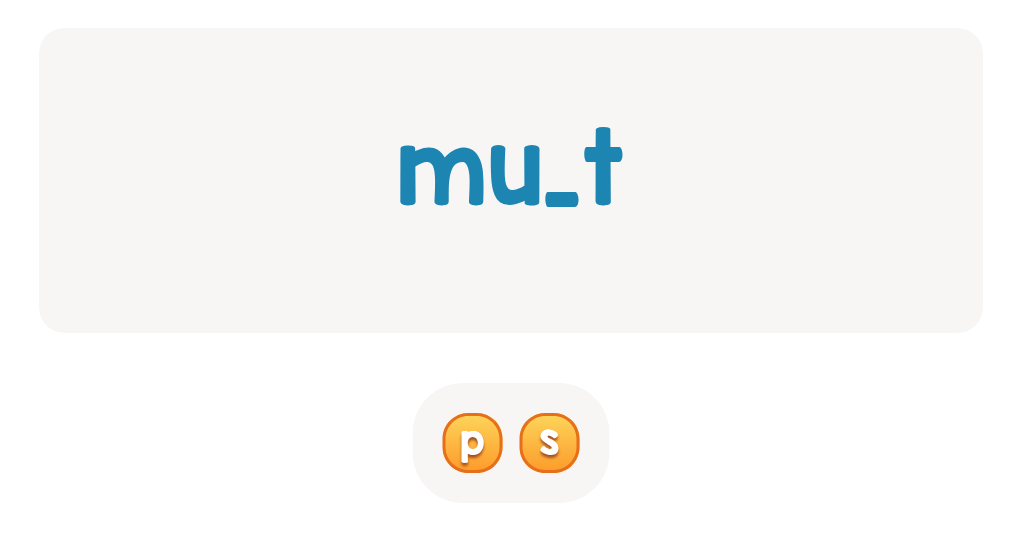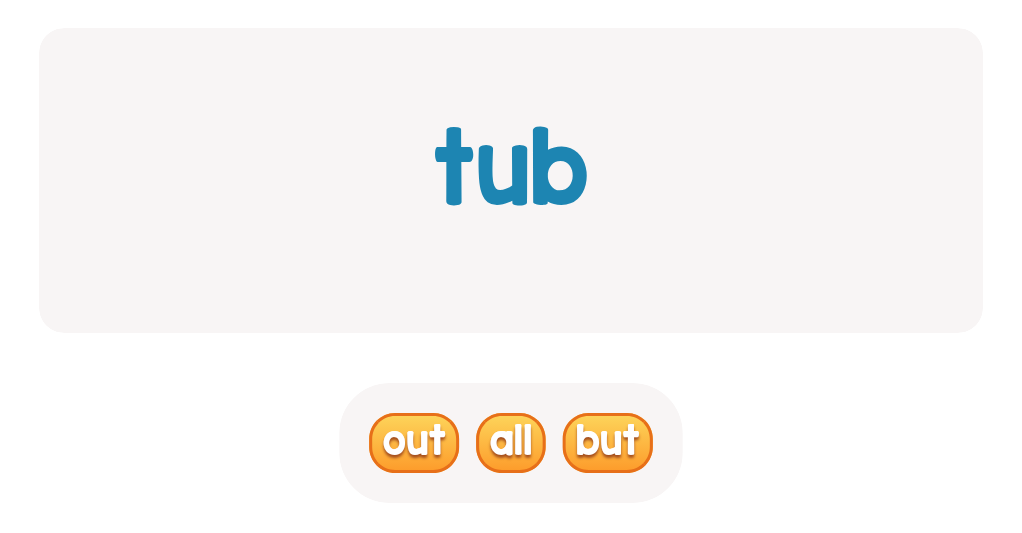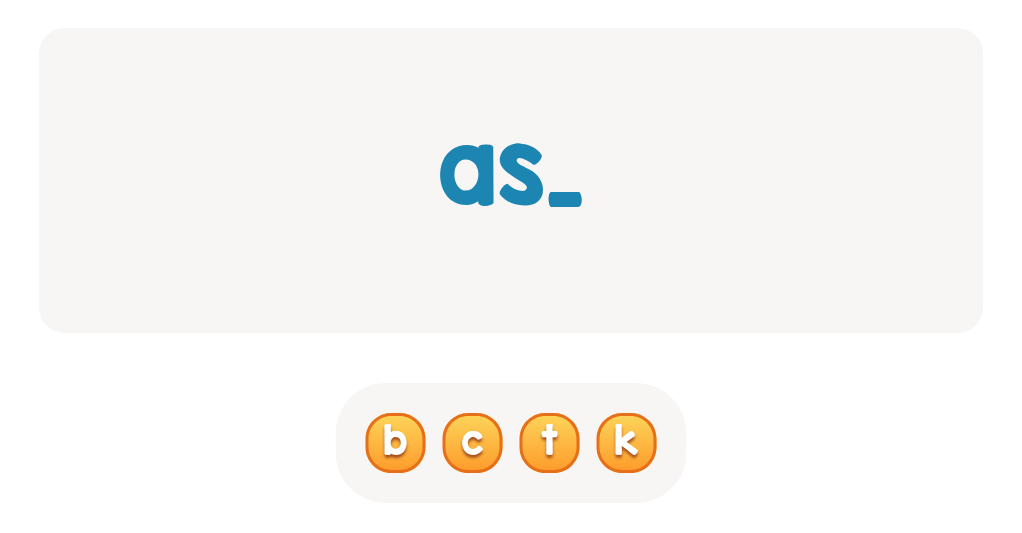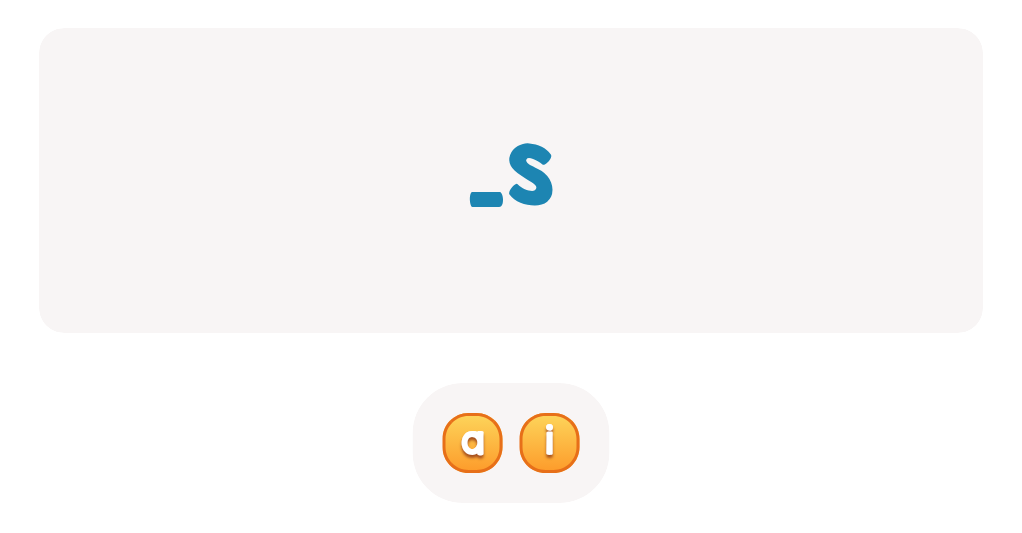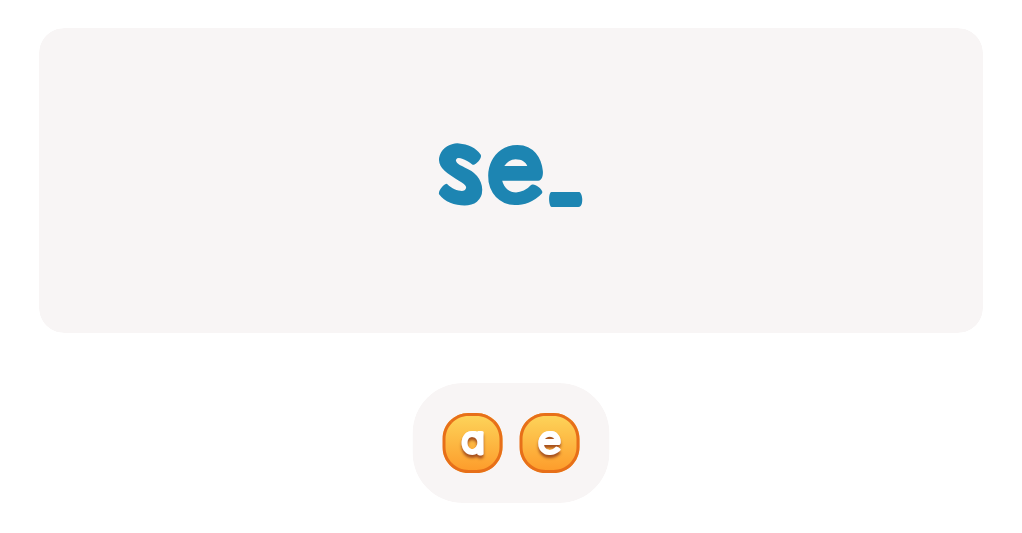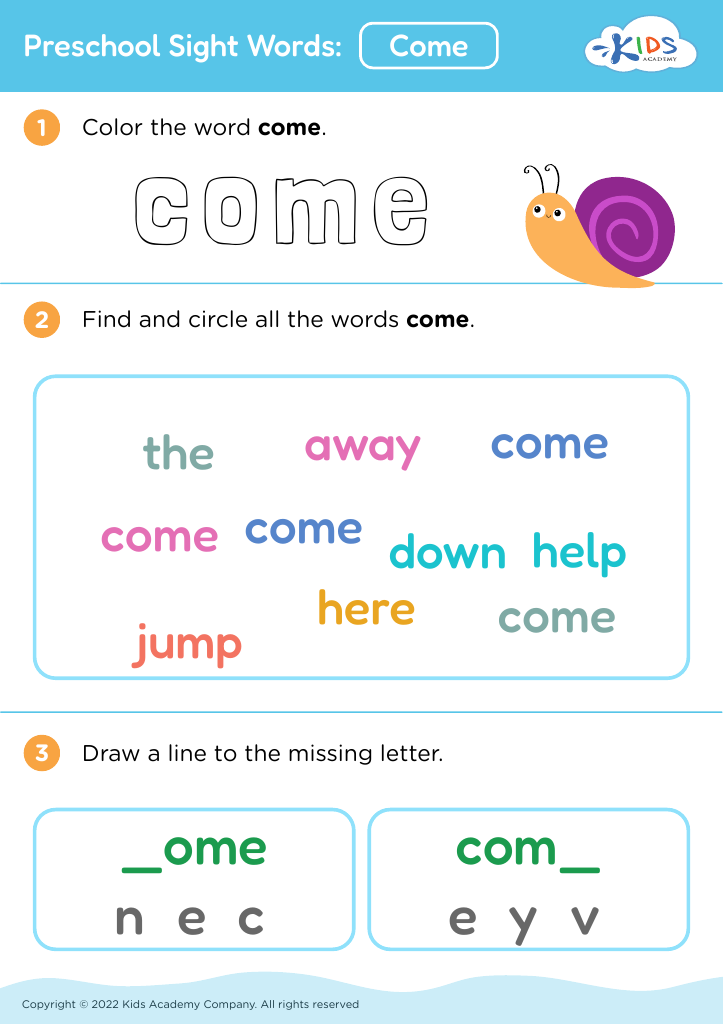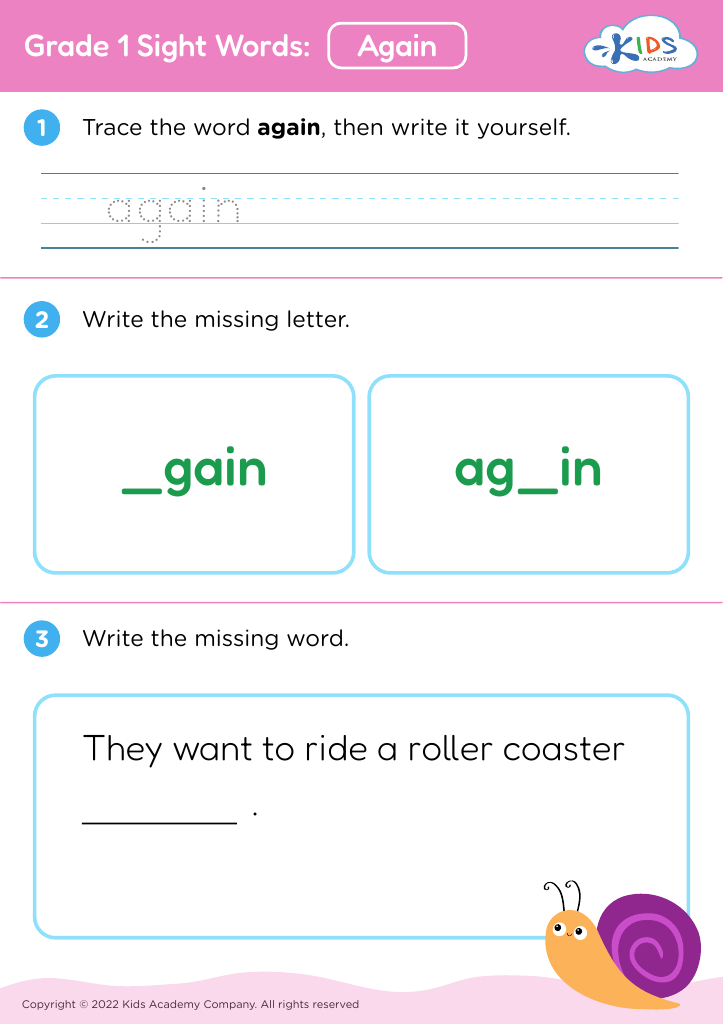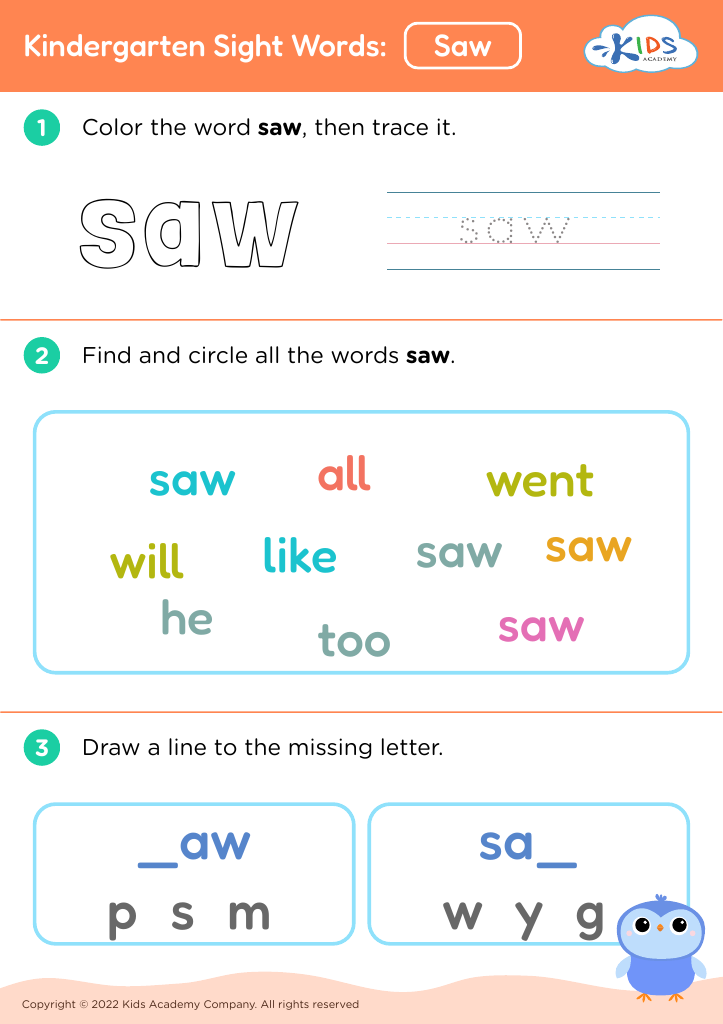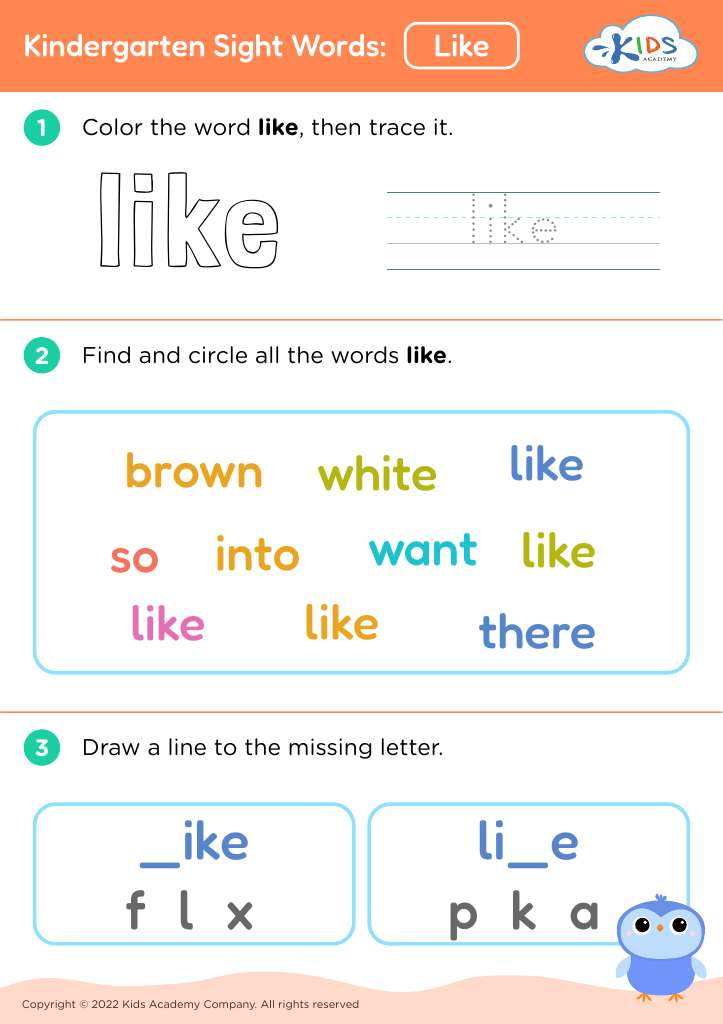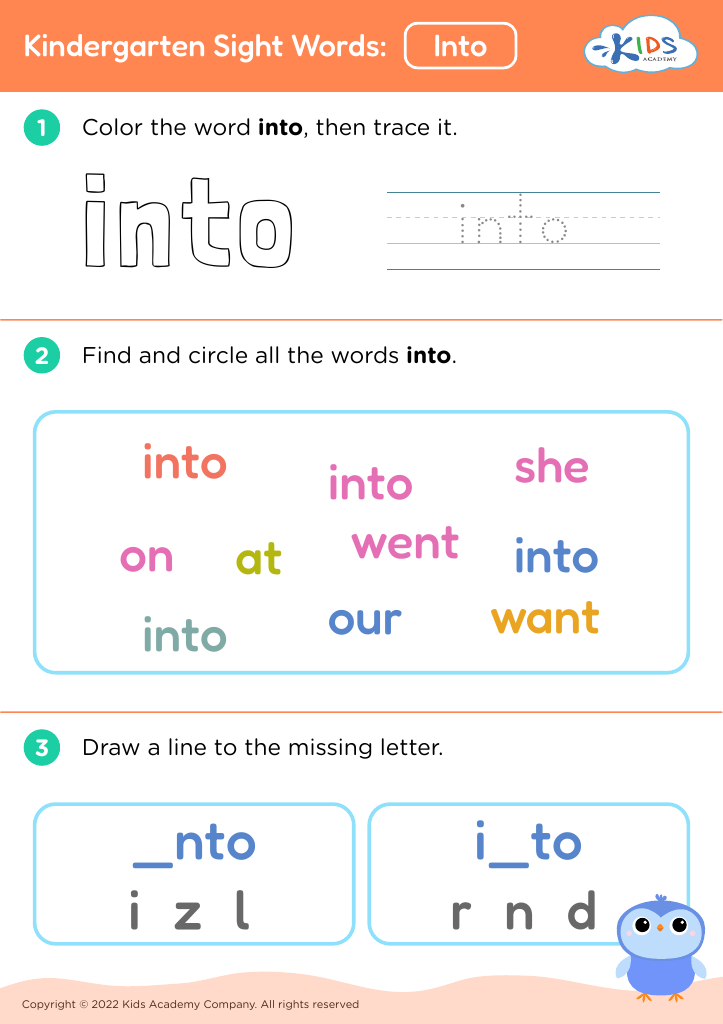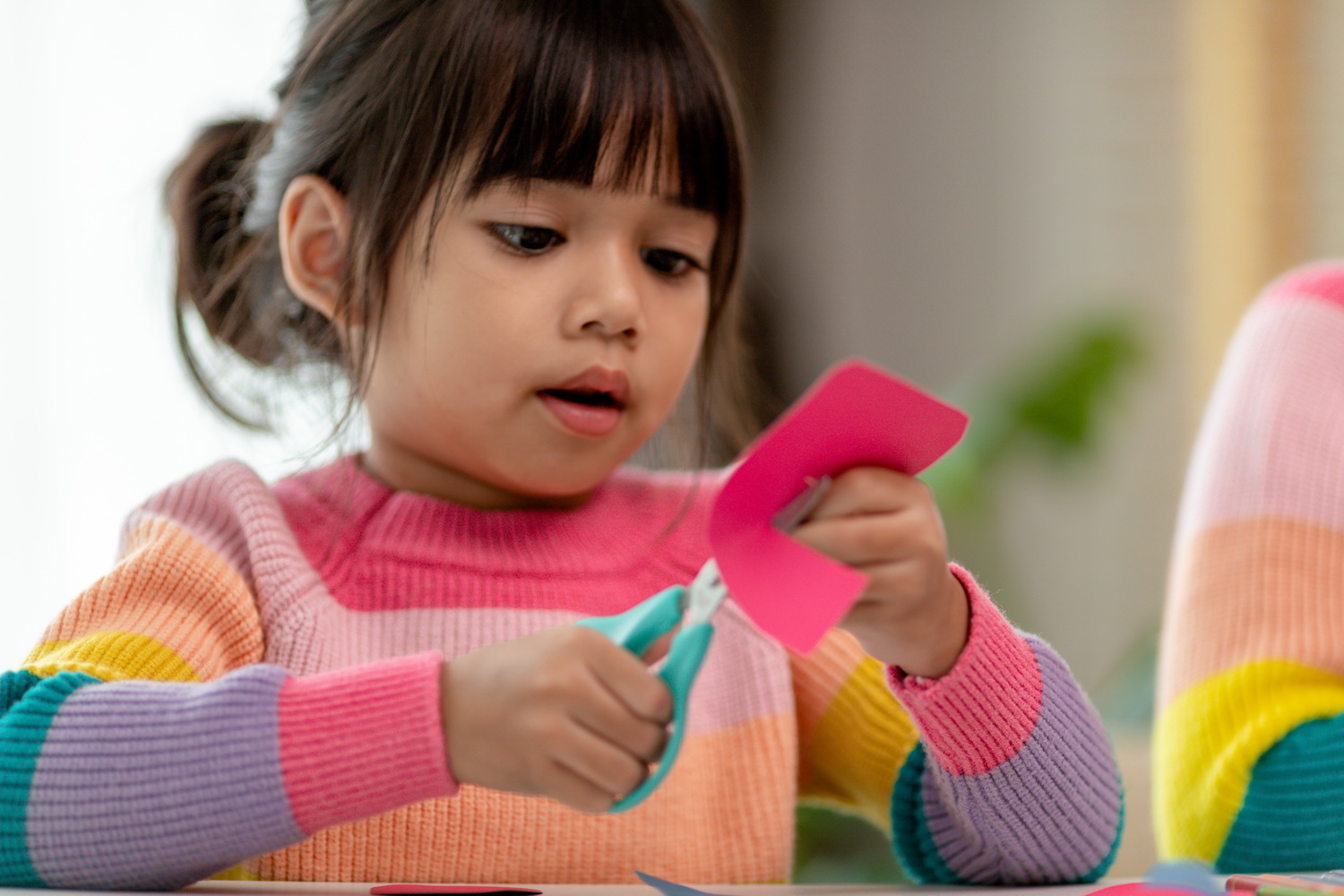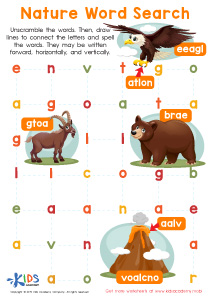Identifying shapes Sight Words Worksheets for Ages 3-6
7 filtered results
-
From - To
Introducing our fun and engaging "Identifying Shapes Sight Words Worksheets" designed for children aged 3-6! These interactive worksheets blend early literacy and shape recognition, helping young learners develop essential skills in a playful way. Each worksheet features vibrant illustrations and simple sight words related to various shapes, fostering an exciting learning environment. As children color, trace, and identify different shapes, they'll simultaneously enhance their reading abilities. Perfect for parents and educators, these worksheets will support your child's cognitive development while ensuring hours of enjoyable learning. Download now to inspire your child’s love for shapes and words!
Identifying shapes and sight words is crucial for children aged 3-6, as it lays a strong foundation for their cognitive and literacy development. Recognizing shapes helps children understand spatial relationships, enhances their problem-solving skills, and promotes critical thinking as they learn to categorize and differentiate between various objects in their environment. Moreover, mastering basic shapes can support skills in art, math, and everyday tasks, building confidence as they progress.
Equally important, sight words are foundational to reading fluency and comprehension. By familiarizing children with common sight words, parents and teachers facilitate early reading development, enabling young learners to recognize words instantly and improve their overall reading skills. This encourages a positive attitude towards literacy, helping to prevent frustration and disengagement with reading.
When parents and teachers prioritize teaching shapes and sight words, they enhance children's cognitive abilities and foster essential communication skills. Engaging with these concepts through fun activities, games, and interactive learning experiences also nurtures a love for learning. Ultimately, the early identification of shapes and sight words empowers children with the tools they need for academic success and lifelong learning, making it beneficial for parents and educators to focus on these developmental milestones.
